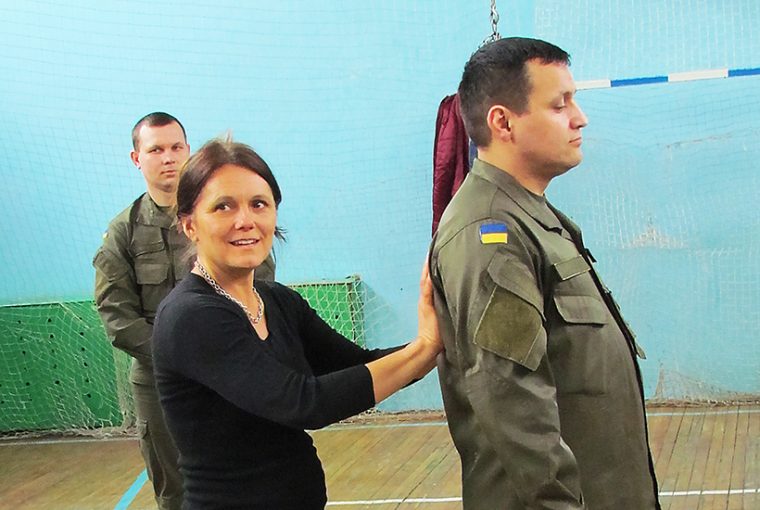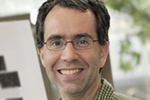The Office of Human Resources reports the following hires, transitions and departures from January through April: Hires Seirra Fowler, director of health education on Jan. 3. Shelissa Newball, associate director of student activities and leadership development on Jan. 5. Rhoanne Esteban, data analyst in university relations on Jan. 9. Jacob Gonzalez, STEM Career Advisor in the Gordon Career Center on Jan. 9. Andrew Harazim, athletic facility maintenance person on Jan. 9. Katie Scheinberg, psychiatric nurse practitioner for CAPS on Feb. 6. Tania Inturrisi, budget analyst in financial planning on Jan. 9. Sarah Curran, director of the Center for the Arts…
The Office of Human Resources will host an ice cream social for Wesleyan staff and faculty from 2:30 to 4:30 p.m., Tuesday June 6.
Wesleyan Professor of Dance and Environmental Studies Katja Kolcio traveled again to Ukraine in April, this time to work with soldiers and psychologists in the National Guard. It was her third trip to the region to teach somatic practices to those undergoing the stress of political conflict, displacement, and combat. Somatics are “mind-body practices that combine physical activity and motion with deep reflection,” she explained in “Somatics and Political Change: Ukraine’s Revolution of Dignity,” (Contact Quarterly, summer/fall 2016), detailing her first trip to the region after Russia invaded Ukraine in 2014. In June 2015 she had been invited to lead…
New climate research by Dana Royer, professor and chair of earth and environmental sciences, finds that current carbon dioxide levels are unprecedented in human history and, if they continue on this trajectory "the atmosphere could reach a state unseen in 50 million years" by mid-century, according to an article in Salon. The carbon dioxide levels in the atmosphere today are ones that likely haven’t been reached in 3 million years. But if human activities keep committing carbon dioxide to the atmosphere at current rates, scientists will have to look a lot deeper into the past for a similar period. The…
Anjali Tamhankar, associate director of human resources, received a Cardinal Achievement Award for her efforts in demonstrating extraordinary initiative in performing a specific task associated with her work at Wesleyan University. This special honor comes with a $250 award and reflects the university’s gratitude for her efforts.



